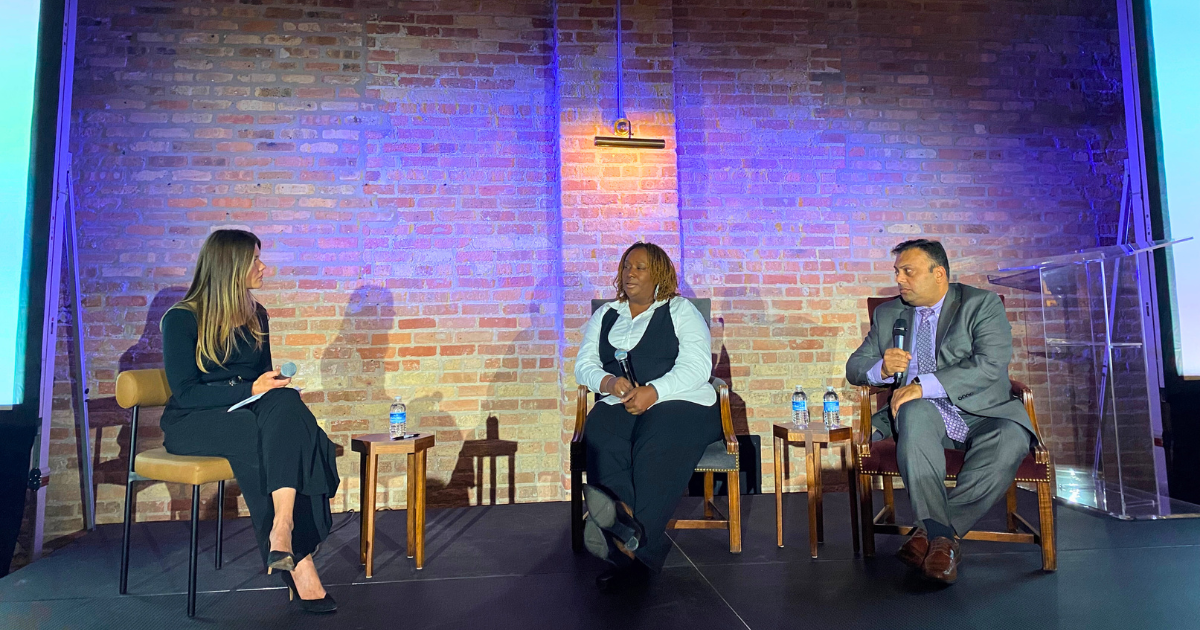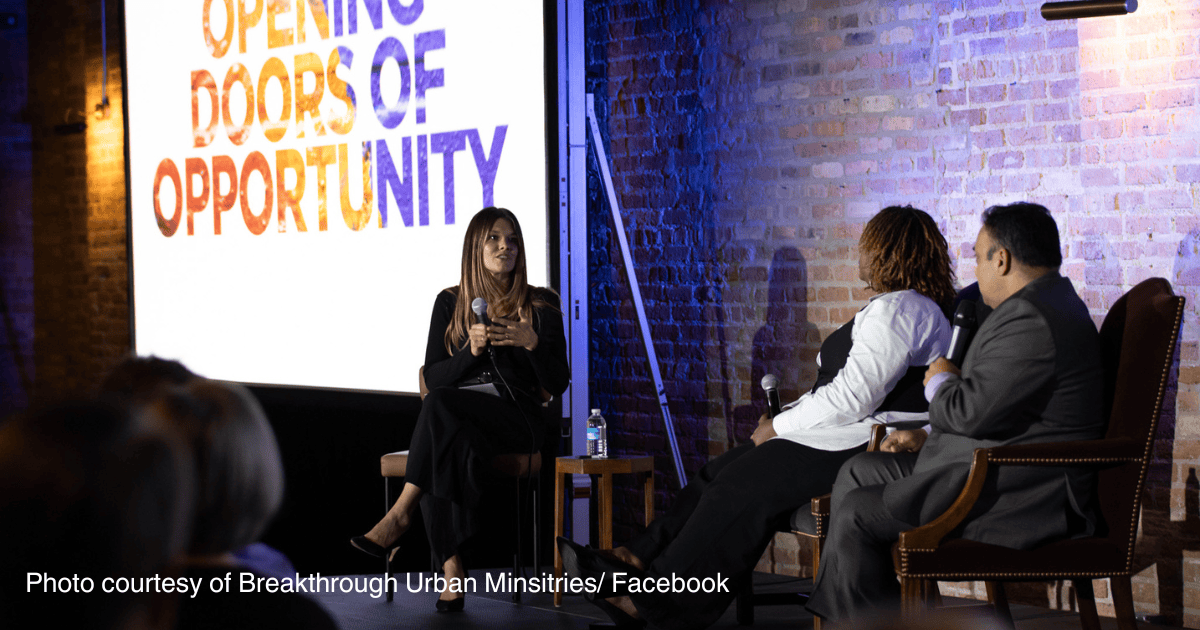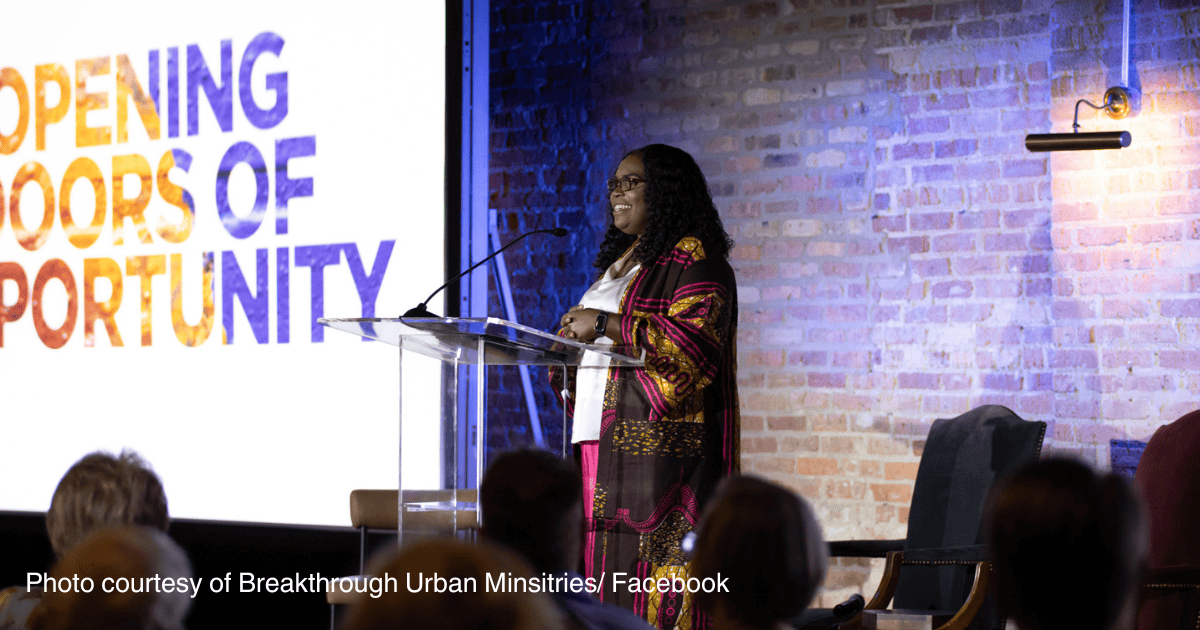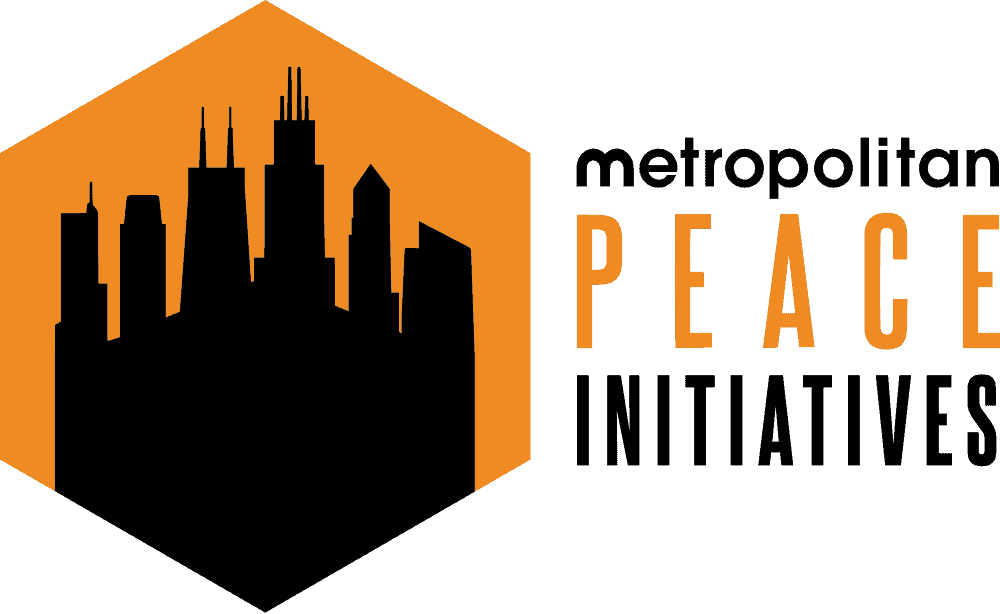MPI Chief Program Officer Domonique McCord Talks Hyperlocal, Trauma-Informed Solutions to Community Gun Violence in East Garfield Park

Effective hyperlocal and trauma-informed solutions to gun violence start with knowing the community and working from within, not out, said MPI Chief Program Officer Domonique McCord during a recent panel discussion at the annual gala hosted by CP4P partner organization Breakthrough Urban Ministries.
The gala brought folks from across the social services and community violence intervention (CVI) field to East Garfield Park, and featured video testimonials from staff and participants, as well as remarks from Breakthrough Executive Director Yolanda Fields.
The panel, which focused on the value of trauma-informed care and holistic, community-driven work in Garfield Park, was hosted by Breakthrough Chief Development Officer Alex Cesario, and also featured Executive Director of the Cook County Justice Advisory Council, Avik Das, Esq.

As Chief Program Officer for MPI and an inaugural member of the MPI team, McCord brings in-depth experience to the challenges Chicago faces. But her own upbringing in East Garfield Park brings a far deeper, personal investment to the work she does. “I stand on their shoulders,” she said speaking of family she had in the room. “Each community has a uniqueness, but we also know that there’s a connectedness in these relationships that brings us together for a common goal.”
McCord said to effectively serve people in a community, and truly practice trauma-informed care, providers must “[…] understand the context in which the community thrives and grows — from an historical standpoint. It’s so important to be able to deliver services in a manner that’s unique and hyperlocal to East Garfield Park.”
“People think of trauma-informed services as a philosophy,” Das shared, “but we like to think of it as a practice.” Das works to advance community safety policy innovation and grant-making in communities most proximate to violence and the criminal legal system.
“When we think about what’s vital in our strategies,” Das explained, “we’re not solving things at the pit of a judge’s seat or at the end of handcuffs, inside detention centers or jails… If there’s doors being broken through, [it’s] through the work that’s being done in our communities.”
Domonique shared that at MPI, programming is co-created with the community: “The voice of what the community needs comes through. These aren’t strategies that we impose on the community. It’s allowing the community to determine what they need.”
While housing and employment continue to be top needs of the communities MPI and Breakthrough work in, Domonique also emphasized the importance of dignity and respect when doing the work. Centering the person receiving programming or resources and insisting upon their humanity in a dehumanizing situation is yet another way of practicing trauma-informed care. “People want to be an integral part of their own healing. I think they deserve to sit at the table and […] inform their own path.”

Fields shared closing remarks expressing gratitude for partners and visions for the future of Breakthrough and East Garfield Park. She thanked the relentless passion and work of her staff and volunteers: “It’s not such an easy endeavor to be promotors of healing and ambassadors of peace when the same things our neighbors are experiencing, they are also experiencing those same tragedies. So I am thankful for them, [that] they continue to open doors of opportunity with love and grace.”
Fields also celebrated the recent groundbreaking of The Turning Point, a new 14-unit residential building that will provide affordable housing for East Garfield Park families. “When that building is complete, we will have proven that affordable housing and homelessness can be addressed one brick at a time, one family at a time, one building at a time.”
Fields emphasized the value of community partnerships like the ones from MPI and Chicago CRED, and collaborations with the philanthropic community, businesses, the government, and law enforcement to combat poverty and violence, two deeply intertwined issues. This demonstrates the necessity for holistic care, “radical hospitality” and relentless engagement to provide housing, health and wellness, violence prevention, and economic development.
During her remarks, Fields shared the community had already raised over $600,000 for Breakthrough’s efforts. “We want to break the chains of despair and hopelessness that destroy the purposefulness of life, the chaos of poverty and violence which disenfranchises those who are caught in them.”
